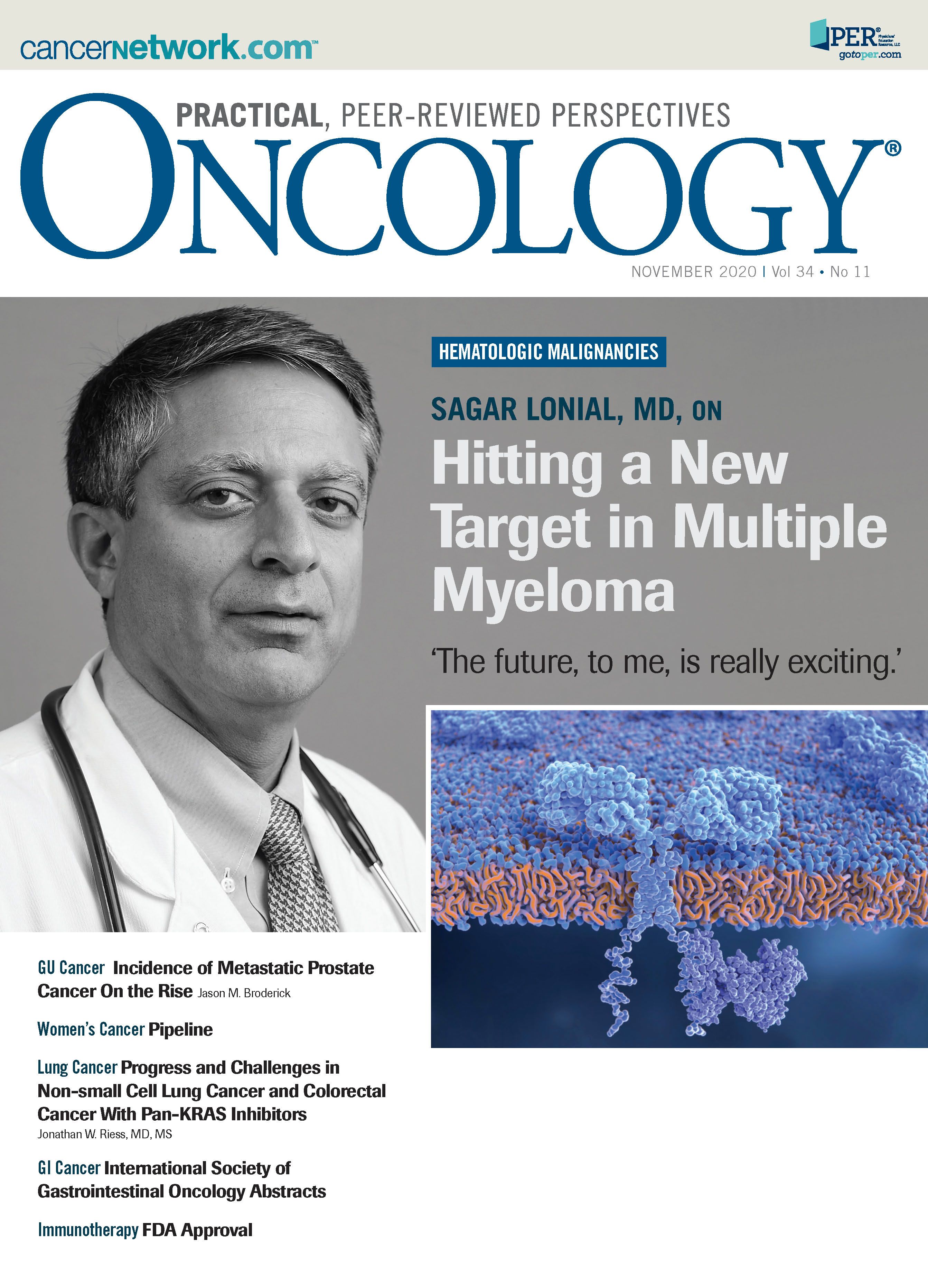BCMA Offers Hope in Multiple Myeloma
B-cell maturation antigen target shows promise for patients with relapsed/refractory multiple myeloma.
The prognosis and survival of patients with multiple myeloma has increased significantly with the development of monoclonal antibodies and immunomodulatory drugs. Despite improved short-term outcomes, the majority of patients relapse or become treatment resistant.
For this patient population, the emergence of B-cell maturation antigen (BCMA)-targeting has provided renewed hope, with antibody drug conjugates, and chimeric antigen T-cell therapies showing high and durable responses in recent clinical trials.
In this issue of ONCOLOGY®, we spoke with Sagar Lonial, MD, professor and chair of the Department of Hematology & Medical Oncology at the Emory School of Medicine, Atlanta, Georgia, and chief medical officer at Winship Cancer Institute of Emory University, about the recent FDA approval of belantamab mafodotin (Blenrep) and the rise of BCMA-targeting agents for patients with relapsed/refractory
multiple myeloma.
“I think we’re seeing BCMA really come to the forefront of therapy,” says Lonial. “The future, to me, is really exciting, because I think it suggests that we can take diseases that are treatable diseases, and potentially cure a large fraction of them.”
Also in this issue, you will read a review of decision-making on fertility preservation among adolescent and young adult women with cancer. How can we support these patient’s future needs, while still providing the best care right now? Read on to find out.
Within these pages, we present the abstracts from the 17th annual meeting of the International Society of Gastrointestinal Oncology (ISGIO), with special commentary from meeting co-chairs Tanios S. Bekaii-Saab, MD, section chief for Medical Oncology in the Department of Internal Medicine at Mayo Clinic in Phoenix, Arizona, and Daniel G. Haller, MD, professor of medicine emeritus, Abramson Cancer Center at the Perelman School of Medicine at the University of
Pennsylvania, in Philadelphia. Also featured is a discussion of the FDA’s recent approval of nivolumab (Opdivo) plus ipilimumab (Yervoy) for the treatment of patients with previously untreated unresectable malignant pleural mesothelioma. This approval marks the first new treatment option for patients with mesothelioma in over 15 years, and was desperately needed for so many patients.
I hope you find our journal helpful in caring for your patients through what is likely one of the most challenging times in their lives. As always, thank you for reading.
